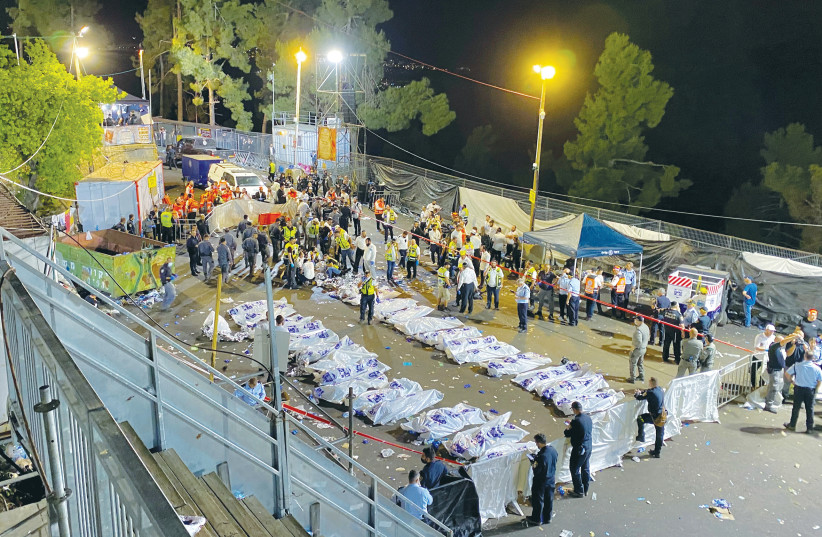Just a year ago, in one of the most horrific events to strike the Jewish people in recent memory, 45 souls lost their lives in the Meron disaster. While numerous political and law enforcement agencies set their focus on addressing the critical public safety lessons so that such a tragedy should never again occur, as a community and as parents and as educators we were left with bitter questions of how we respond to the emotional traumas that emerged from that horrific night.
Even before the tragedy, Lag Ba’omer was a difficult day to grasp. Among the more mystical and esoteric of days on the Jewish calendar, it is also celebrated as the day when second century-famed Rabbi Akiva’s students stopped dying from a plague that decimated his yeshiva.
An obvious question, and one not dissimilar to one that needed to be posed at numerous times throughout Jewish history, is how was the community able to move on to the point where Lag Ba’omer became a day of celebration and joy?
Tragically, the events of Meron have once again brought those thoughts into our minds, and it brings up the question of how we restore happiness and meaning to Lag Ba’omer.
I would humbly suggest that the answer lies deep in how we generally are to approach tragedy and challenge in life.

When life provides us with hardship and confusion, whether it be personal or communal loss, injury or illness, financial difficulties or whatever it is that is causing us pain, we need to appreciate the notion that our lives should not be wholly defined by those feelings.
Over the many years that I have worked with children and families forced to confront some of the most challenging decrees that we could ever imagine God could deliver into our lives, I am always inspired by how it is often those who are in the most pain who internalize that message most. Whether it’s a young girl with cancer who wakes up from yet another surgery singing inspirational songs or a boy who uses a wheelchair zip-lining across Camp Simcha, these precious children always seem to find light in the darkness.
The lesson that I take from those moments is that for every challenge that God gives us in life, we are presented with a choice. Perhaps we could allow the tragedy of Meron to transform Lag Ba’omer into a day of memorial and sadness (certainly the anniversary must include remembrance) or we can learn the lesson that everything in life must be measured.
From the stories I have heard and read of the victims, these were all special people who came to the hilltop grave of Rabbi Shimon Bar Yochai on Lag Ba’omer out of a deep commitment to Jewish faith and tradition. Among them was 19-year-old Donny Morris, a youth volunteer at our Chai Lifeline i-Shine after-school program for siblings of children with serious illness, who was dedicated to bringing joy to those in the darkest of places.
This balance is both a challenge that has followed us throughout Jewish history and one of our greatest strengths. When we show our children how to continue to embrace the simcha of Lag Ba’omer even while memorializing the tragedy, we are teaching them this eternal lesson that life need not be perfect to be deeply meaningful. Loss and tragedy are ever-present aspects of our existence, but it is our responsibility as parents and educators to ensure we always teach our children, and remind ourselves, that even while we remember and memorialize, we always continue to grow, to rejoice and to be thankful for what we have.
The writer, a rabbi, is chief executive officer of Chai Lifeline.
